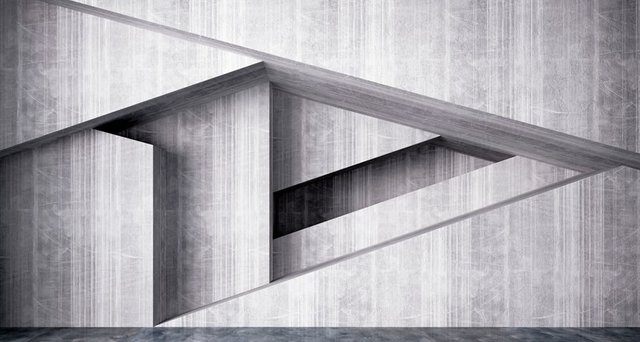An Introduction
Concrete is actually nothing more then a mixture of an aggregate (like sand), cement and water (and maybe additives). In a chemical reaction it hardens to basically man-made and formed stone. This mixture is more or less used even since Ancient Egypt and for example gave the Roman Empire the ability to built one of the most impressive buildings of all time: the Pantheon. For many still seen as a cheap and cold material to build lifeless architecture, it is gaining more and more interest not only in the construction side of things but also as an esthetic feature.
Architecture has its place in the concrete world. This is where it exists. This is where it makes its statement.
-Peter Zumthor
The construction side of things
The reason why concrete became popular in the first place is because after a good mixture was found it was an accessible alternative for bricks and wood. It has some major advantages:
- Because it has nearly the same thermal expansion rate as steel those are easily combined. Together they can withstand both great tensile and great compressive forces
- It isn't bound to one appearance: Because its form can be chosen the possibilities designs are endless
- It can contain everything: Since it is fluid in the beginning it can be poured around everything imaginable. This includes insulation, heating installations, pipes, etc.
- An entire house can be build in one week: That might sound crazy but it's true. There are projects already finished where an entire building was poured at once. Of course the formwork and planning need more preparation but once that is done it takes one day to fill it up with concrete and one week to dry and boom! - There is your house.
- It can be made completely waterproof
Design possibilities
And now we come to the real part! Although the advantages it has constructively are probably enough to argue its place on top of all the building materials is well deserved it has even more to offer. Especially architects have fallen in love with concrete for its possibilities when it comes to creativity.
Possibility #1: The form
That's the most obvious one: Of course you can determine the form of concrete as you wish. That gives the freedom to create walls, roofs, sculptures, ... - everything really
Possibility #2: The surface
As mentioned above the surface is one of the key design parts when it comes to concrete. Many different impressions can be made just by using the right formwork. It can be smooth and glossy, it can be rough and seem unfinished, it can create the illusion of another material like wood.

Possibility #3: Additives
And here is the coolest part of all of this: You can build things inside concrete. Doesn't seem exciting? Well what if I would tell you about making parts of the wall translucent? For example this mosque in Abu Dhabi with shows Arabic writing in the dark just by lighting up the interior:

Thanks for reading!
In the end it all comes down to taste, but in this case I hope I've proven concrete as pretty diverse and in my opinion awesome. That's why it's becoming more and more popular. However if you liked this feel free to follow me and contact me if you have any questions.
Sources
- https://i.pinimg.com
- https://static.concretenetwork.com
- https://www.baulinks.de
- https://www.sciencenewsforstudents.org
